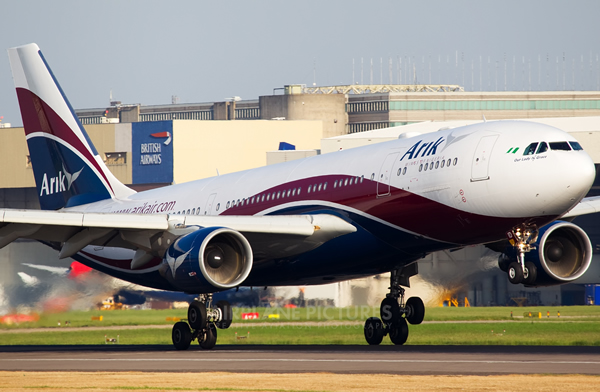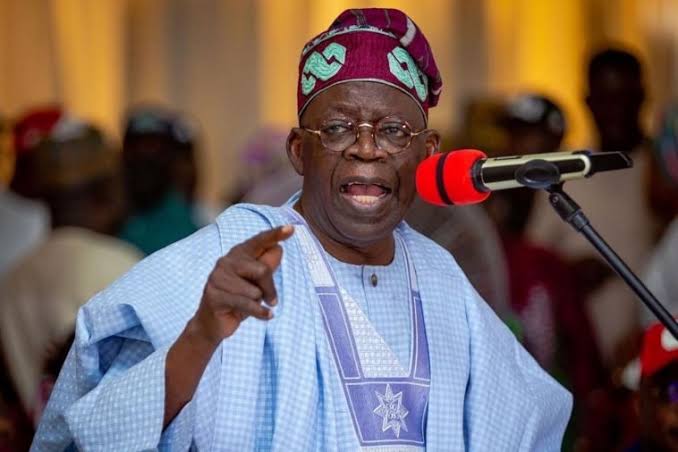FG may convert Arik, Aero Contractors to national carriers
The Asset Management and Corporation of Nigeria has said Arik and Aero Contractors airlines may be merged and converted to a national carrier.
The AMCON Managing Director/Chief Executive Officer, Gbenga Alade, stated this on Monday at an interactive session with media executives in Lagos.
According to Alade, both Arik and Aero Contractor are owing so much money that they may not be able to pay.
He stated that the corporation presented the idea of converting Arik and Aero Contractor to the former aviation minister but it was rejected.
So This Happened (248) Reviews the Africa Magic…
“The former management of AMCON presented the idea of converting Arik and Aero to a national carrier. But the former aviation minister did not buy the idea. We will present it again because that is the best option.
“Unfortunately, the special purpose vehicle that was created by the former management of AMCON for the conversion of Arik and Aero to a national carrier had been sold. But we can create another SPV this,” he explained.
Recall that the former Minister of Aviation, Hadi Sirika, launched the Nigeria Air three days before the end of former President Muhammadu Buhari’s administration.
The development had elicited concerns among stakeholders over the ownership arrangement which gave Ethiopian Airlines a 49 per cent equity stake in the company.
The Federal Government had a 5 per cent equity, while a consortium of three Nigerian investors had 46 per cent.
Reacting to the deal in June 2023, the House of Representatives asked the Federal Government to suspend the operations of Nigeria Air, describing it as a fraud.
In August 2023, the incumbent minister, Festus Keyamo announced that the national carrier project was suspended till further notice.
Keyamo said, “It remains suspended. It was never Air Nigeria. It was not Air Nigeria. That’s the truth. It was only painted Nigeria Air. It was Ethiopian Airlines trying to flag our flag.
“If it is so, why not allow our local plane to fly our flag? So nobody should dispute that it was Nigeria Air.
“Air Nigeria must be indigenous, must be wholly Nigerian, and must be for the full benefits of Nigeria, not that 50 per cent of the profit is for another country.”
Recently, a Federal High Court sitting in Lagos halted the sale of Nigeria Air to Ethiopian Airlines.
The court declared null and void, the sale of the shares of Nigeria Air to Ethiopian Airlines after determining the issues in the suit.
Justice Ambrose Lewis-Allagoa ordered that the Federal Government’s plans to establish a national carrier, Nigeria Air, should be halted.
The judgment was delivered in favour of the Registered Trustees of the Airline Operators of Nigeria and five other aviation industry stakeholders.
At the briefing on Monday, Alade said the present status of Arik and Aero Contractors had been giving him sleepless nights.
“Believe me, it is a very difficult problem to resolve, and it is giving me sleepless nights, particularly Arik.
“Arik is owing so much that they cannot pay,” he stated.
Speaking further, Alade said, “There is a way out. We have met all their major international creditors. Afreximbank is one of them. They (Arik) are owing Afreximbank about $52m.”
After negotiations, he said the airline was only willing to take $8.5m out of the $52m.
“However, where will that $8.5m come from? Where? AMCON doesn’t have money of his own to put there? And then they negotiated and said, okay, ‘let’s take some of the engines of those things away in full and final settlement’. And the truth is that, if they took those engines away, Arik is finished.
“But we said ‘no, we cannot allow you to take it away. Let AMCON give you a kind of bank guarantee. And we will stretch it so that three planes are flying now and by the Lord’s grace, by February next year, we want to make seven planes fly for Arik,” he stated.
The PUNCH recalls that the Nigerian Airspace Management Agency grounded aircraft owned by Arik over a court order instituted by the airline’s creditor and billionaire businessman, Arthur Eze.
Eze had approached the court in protest against his unpaid $2.5m by the founder of Arik Air, Johnson Arumemi-Ikhide.
In a statement by the spokesperson of NAMA, Abdullahi Musa, the agency said the development stemmed from an enforcement action by the FCT High Court on July 19, 2024, which involved attaching Arik’s planes to secure the debt.
In 2016, AMCON took over the management of Aero Contractors after it dissolved the board of the company, appointing a manager to run the affairs of the company in an interim capacity.
AMCON said in a statement by its media consultancy firm that the decision to take over the management of the company was in furtherance of its responsibility of acquiring eligible bank assets and putting them to economic use in a profitable manner.
Similarly, Arik Air, founded by Mr Arumemi Johnson, was taken over by AMCON in 2017 after the carrier’s management failed to honour its debt obligation running into several billions of naira.
AMCON had taken over debts from local banks owed by Arik.
Last year, the corporation asked the owners of Arik to present a credible debt resolution plan to the bad debts manager if it hopes to recover the company from the Federal Government.
AMCON’s asset recovery efforts
In a move to recover outstanding debts of nearly N5tn, Alade announced plans to engage international asset tracers to locate and recover assets hidden by recalcitrant debtors offshore including those masqueraded under special purpose vehicles.
Alade stated that since the new management took over about five months ago, they have successfully collected approximately N100bn from several high-profile debtors and revised the sale of some assets.
He emphasised that the organisation had been receiving strong support from President Bola Tinubu, the Central Bank Governor, the Federal Ministry of Finance, the Attorney General of the Federation, and the National Assembly in their efforts to recover debts transferred by banks to AMCON during the different phases of eligible bank asset acquisition.
The AMCON CEO mentioned that the chairman of the House Committee on Finance had pledged to name and shame obligors, who had yet to repay their debts at a major stakeholders’ conference that would be held before the end of the year.
He revealed plans to organise a conference where senior officials from the Central Bank of Nigeria, relevant ministries, banks, and the judiciary would be invited to discuss the challenges posed by non-performing loans in the country.
He expressed confidence that resolving issues surrounding assets in the oil and gas sector would boost production, generate more foreign exchange, and create employment opportunities for citizens.
He noted that the corporation had achieved remarkable results in two of those assets in less than five months.
In the power sector, he disclosed that AMCON had made significant progress in one of the biggest distribution companies and an abandoned power project in Kaduna.
Alade emphasised the potential impact of addressing power challenges in Nigeria, stating that some banks with approximately 400 branches across the country spend as much as N500bn annually on diesel for their generators.
He believed that tackling the power sector would significantly improve the overall business environment.
According to Alade, AMCON is also working on assets in the telecommunications sector, aiming to revive dormant assets and bring them back into operation

 Business6 months ago
Business6 months ago
 celebrity radar - gossips6 months ago
celebrity radar - gossips6 months ago
 Politics6 months ago
Politics6 months ago
 Entertainment4 months ago
Entertainment4 months ago











